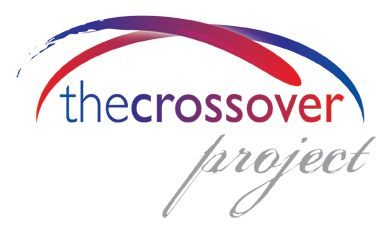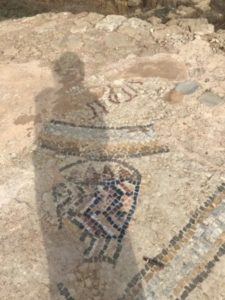In this writing we will continue our exploration of insight that may be gained into the scriptures by application of Hebraic thought, culture and imagery. In Matthew 11:12, during a discourse about John the Baptist, Jesus makes a strange statement.
“And from the days of John the Baptist until now the kingdom of heaven
suffereth (allows) violence, and the violent take it by force.”
Matthew 11:12
For centuries bible students have grappled over the meaning and intent of this verse as it seems to contradict the majority of Jesus’ teachings. This verse is difficult to understand to say the least. Despite the mystery surrounding this verse it is gaining renewed popularity among zealous spirit filled ministers and televangelists alike. Lately I have heard this verse quoted by various clergy on a regular basis. Unfortunately, just as often as I hear it referenced I hear it referenced incorrectly. This is truly unfortunate because the true interpretation of this verse is much more powerful and applicable to the topics being articulated than the incorrectly preached applications that I hear.
So let’s explore this peculiar verse in hopes of obtaining some understanding of its true meaning. Once we begin to unravel the threads of this mysterious verse I think that you will agree with me that in spite of its bizarre appearance it is one of the most exciting and amazing scripture verses in the entire bible. Once again David Biven and Roy Blizzard, authors of “Understanding the Difficult Words of Jesus” are to be thanked for shedding light on the true meaning of this verse and we will follow the fruit of their intensive research in this brief writing.1
In order to understand Matthew 11:12 we must be aware of three points. First of all, this verse is poorly translated and the expressed words do not come close to the actual intent and meaning. Secondly this verse is a remez to Micah 2:12-13 and thirdly, an understanding of biblical shepherding and in particular the activities associated with the sheepfold is essential in order to understand the Hebraic imagery expressed in this amazing verse.
Point 1: It is correct to say that this verse is poorly translated; however, it is unproductive to linger on this realization as we can do nothing about the poor translation. Suffice us to say that the original bible translators did an incredible job to bring us our scriptures but they were only human and as such did not always get things exactly right. The bible is God’s holy word and His Holy Spirit was prominent in both the writing and translation of the text. However, it is the writer’s opinion that the Holy Spirit left a few dangling loose ends in an effort to prompt future generations into deep pursuit of His mysteries. As such we should be thankful for the challenges of searching out God’s holy word in pursuit of hidden knowledge and in our quest for the revelation of who God really is. This verse is one such challenge and is exciting to explore.
Point 2: Matthew 11:12 is a remez to Micah 2:12-13. What is remez? It is a subtle hinting or indirect reference or suggestion regarding a related subject. As an example; in a bible study class that I was attending a few months ago, the teacher needed a podium or stand to hold his books and notes for the lecture. As there was no podium in the classroom he asked me to bring him a music stand from the auditorium. As I was leaving the classroom in search of the stand, the teacher jokingly said to me, “And if anyone asks you where you are going with that stand, tell them the teacher has need of it”. I started laughing because I recognized that he was making a remez to Matthew 21:3 wherein Jesus tells his disciples to bring him a colt for the triumphant entry into Jerusalem. The teacher proceeded to explain his remez but there was no need. I was familiar with the hinted verse and understood the remez immediately. Jesus’ ministry is rich in remez. In fact, remez is one of his primary teaching tools as both he and his Jewish audience were well versed in the Hebrew Scriptures. Subsequently, it is not surprising to discover that the heart of Jesus’ discourse in Matthew is a subtle hinting to a recorded prophetic word in Micah that so brilliantly depicts his intended message.
Point 3: Now that we know Matthew 11:12 is a remez to Micah 2:12-13, we need to concentrate on these verses in order to understand their true intent and meaning.
V-12 I will surely assemble, O Jacob, all of thee;
I will surely gather the remnant of Israel;
I will put them together as the sheep of the sheepfold,
as the flock in the midst of their pen.
They shall be crowed and shall make a great noise.
V-13 The breaker (one who breaches the wall) goes before them;
they (the sheep) have broken up (the wall),
and have passed through the opening,
and are gone out by it:
and their king(shepherd)shall pass before them,
and the LORD at the head of them.
Micah 2: 12-13
Micah 2:12-13 is a Messianic prophecy written in beautiful Hebrew poetry that uses the imagery of the sheepfold to convey its compelling message. In order to understand these verses of Micah we must first acquire some knowledge regarding shepherding and in particular the activities associated with the sheepfold of the ancient Near East.
When tending their flocks in open pasture, shepherds of the biblical era would construct temporary pens to retain the sheep at night in order to prevent them from wandering off into the darkness and becoming lost or killed by savage predators. These makeshift sheepfolds were generally small in size and the sheep were crowded into a confined space. Generally, the sheepfold would be built on the side of a hill and the walls of the makeshift structure constructed of readily available materials such as rocks, thorn bushes, tree limbs, etc.. While the sheepfold was a necessary means of protection, it was not necessarily pleasant or comfortable for the sheep. The quarters were cramped and movement restricted as the sheep were wedged in tightly together. It was hot and smelly with no means of obtaining food or water. As can be imagined the sheep looked forward to leaving the sheepfold at daybreak for the freedom of the nearby pastureland. As morning begins to break the sheep sense that the time of their release is approaching and they become restless and anxious to leave their confinement. In anticipation the sheep begin to push and shove, making a considerable amount of noise in the process. They are ready to be released. Suddenly in the midst of this increasing noise, confusion and anxiety, the shepherd’s helper (Breaker) appears and begins to break down the walls by removing the rocks, thorns, etc.. The flock at this point takes on chaotic characteristics as each individual sheep is trying to be the first one out of the sheepfold and into the pasture. The noise becomes extremely loud and the sheep unruly. As the sheep see the wall being breached, they become so excited and uncontrollable that they actually begin to push thru the gap before it is fully open. In their excitement for release they step on each other, they push, shove, and bite; some even try to leap over those in the way. One could say that the sheep have become violent and taken the sheepfold walls by force as they push through the gap and break out. Once the wall has been fully breached, the shepherd appears and leads the sheep out of the fold and into the open pasture where they experience freedom, food and fresh water.
Now that we have established some background, let’s start unraveling this mysterious passage by combining the powerful imagery of Micah 2:12-13 with Matthew 11:12. In Matthew 11:12 the house of Israel is associated with sheep who have been penned up all night in the sheepfold. The people have been restricted and retained by their religious traditions and legalistic religious leaders much the same way as the sheep in the sheepfold. The people feel cramped and uncomfortable under the political and religious confinements of the day, yet they sense that a spiritual change is on the near horizon. There is a feeling that the promised Messiah will soon appear and the people are restless for his appearance and deliverance from oppression. Many people are discerning the times and seasons with great anticipation. Jesus then compares John the Baptist to the “Breaker” or shepherd’s helper referenced in Micah 2:12-13. John makes a breach in the wall and has opened the way. He is the spirit of Elijah as referenced in Malachi 3:1 and 4:5-6, who goes before the LORD to prepare the way by beginning to overthrow the abusive, controlling and compromising political/religious leadership of the day. The people become excited at the message of John as they see a new day dawning on the horizon and begin to break out of their confined and limited spiritual mentality. It is at this point that Jesus, the shepherd / king, arrives to lead the sheep through the breach to spiritual nourishment (food/water) and eternal life (freedom). It is an universal picture of the Kingdom of Heaven (Power of God) bursting forth into the world, and individuals within the Kingdom experiencing freedom that comes from spiritual power and deliverance. Jesus relates to his listeners the spiritual power that is available to those who break out of confining religion into the freedom of Kingdom living and personal relationship with their shepherd/king.
Utilizing our new understanding as described above, we might respectively rephrase Matthew 11:12 as follows: “The ministry of John the Baptist (Spirit of Elijah) has breached the wall of abusive/legalistic government/religion and the Kingdom of Heaven (Power of God) is being released upon the earth by Jesus the Messiah.”
We know from Jesus’ own words that the promise of the coming of Elijah was fulfilled once in the person of John the Baptist as discussed above. However, this prophecy also contains a deeper dimension of meaning that relates to the end of the age. The words of Jesus in Matthew 11:12 are also a foreshadowing of that which is to come. Before Jesus returns again, the Spirit of Elijah (Breaker) will come, this time in the form of an anointing or movement rather than embodied in one person.
Why the spirit of Elijah? Why a Breaker anointing? It was Elijah who was instrumental in breaking down and overthrowing the abusive, controlling and compromising prophets of Jezebel. The spirit of Jezebel is alive and well today and must be dealt with. The constraining walls of political correctness, religious ritual, self-righteousness, self-promotion, materialism, and compromise that is so prevalent within world governments and the modern day Church must be breached in order for the Kingdom of Heaven (Power of God) to burst forth into the world. God desires that his sons and daughters co-labor with Him in bringing down these barriers so that Jesus can take control and lead the multitudes to spiritual nourishment and freedom.
Pray for the Breaker anointing of the Spirit of Elijah to be sent forth upon the face of the earth so that the Kingdom of Heaven may suffer violence and the violent may take it by force.




